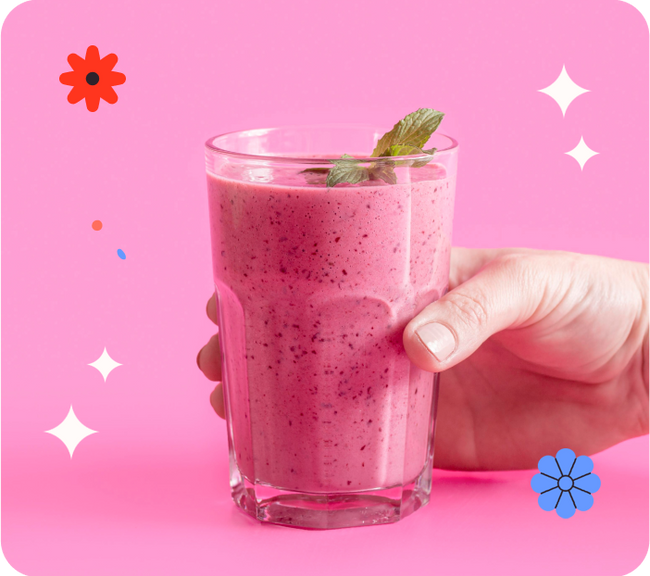Your metabolism plays a vital role in energy and weight management. A fast metabolism ensures that you are brimming with energy, and you can get away with eating almost anything without having to worry about packing on the pounds.
On the other hand, those with a sluggish metabolism seem to pile on the pounds by just looking at food. They find it difficult to lose weight no matter how much they diet and they tend to feel tired all the time.
While having a fast metabolism is no doubt a blessing, bodybuilders looking to bulk up may find it difficult to achieve their goals. Though frustrating, metabolism is only one part of the puzzle. With the right nutrition, workout regimen, and lifestyle adjustments, you can achieve your desired weight.
Key Takeaways:
- With frequent meals and a consistent caloric surplus from calorie-dense foods, you can gain weight even if you have a fast metabolism.
- Strength training builds muscle mass and promotes healthy weight gain. Prioritize compound exercises such as squats, deadlifts, and bench presses.
- Gaining weight with a fast metabolism takes time and dedication. So, stay consistent with your routines and be patient.
Can You Gain Weight with a Fast Metabolism?
Yes, you can gain weight with a fast metabolism. A fast metabolism does create certain challenges when it comes to gaining weight. But no worries; there are ways to overcome this barrier and successfully achieve the healthy weight gain you are looking for.
Successful weight management requires strategic lifestyle adjustments that align with the principles of calorie surplus, macronutrient balance, and effective exercise routines. Also, keep in mind that consistency and patience are key to achieving your weight-gain goals.
What is a Fast Metabolism?
A fast metabolism means your body burns calories faster than average. The food you eat is burned up quickly for energy, and then your body fat also gets burned up if you don't eat enough. A fast metabolism results in a higher calorie burn rate, even at rest. This can make it difficult to gain or maintain a healthy weight. I'm sure this sounds like a dream scenario for those struggling with low metabolism and unwanted weight gain.
When your metabolism is too slow, even the small amounts of food you eat get stored as fat rather than being burned for energy. You end up with no energy, fatigue, and even more hunger. But before you get too envious, those with fast metabolisms have their own struggles to deal with.
How Do You Know If You Have a Fast Metabolism?
Signs and symptoms of a fast metabolism are:
- Low body weight: Despite a high food intake, your body weight remains low. No matter how much you stuff yourself, you simply can’t seem to put on weight.
- Frequent hunger: You may need to eat more often. You may have just stuffed yourself, but you get hungry again in no time.
- High energy levels: You may seem restless or fidgety. You have so much energy in you that you’re always on the move.
- Difficulty gaining muscle mass: You have been working out regularly, doing all the right things to build muscle mass. You may have lean, toned muscles. But building bigger muscles is difficult.
- Higher body temperature: Your ‘normal’ body temperature may be higher than set standards. You may sweat even when the weather seems fine.
How to Gain Weight with a High Metabolism?
If you have a high metabolism, you need a strategic approach encompassing nutrition, exercise, and lifestyle adjustments to gain weight. Here are some helpful tips to gain weight:
-
Increase your protein intake:
If you are looking to bulk up, then you need to prioritize your protein intake. Protein is required for building muscle mass. You should include plenty of protein-rich foods, uch as chicken, fish, eggs, and legumes, in every meal. Protein coffee is a great way to add more protein to your diet. Protein coffee from Awesome Coffee offers 13 grams of protein in just one scoop. You can also use this to make a calorie-rich smoothie. -
Go for high-calorie foods:
Choose calorie-dense foods that are high in healthy fats and complex carbohydrates. Have plenty of avocados, nuts, seeds, dairy products, and whole grains. -
Increase the frequency and quantity:
Evidently, the first thing you need to do is eat as much as you can. To increase your overall calorie intake, try eating five to six smaller meals rather than just three main meals a day. -
Drink your calories:
High-calorie smoothies and shakes can help you consume more calories without stuffing yourself to the brim. -
Build muscle mass to bulk up:
No one wants to get fat. When an underweight person is trying to gain weight, they aim to get healthier and stronger. And to look good! You definitely don't want to get a big belly and fat thighs. To gain weight in a healthy manner, it's advisable to build muscle mass with weightlifting and resistance training. -
Go easy on your cardio:
Cardio workouts are great for cardiovascular health. However, too much cardio can burn too many calories, making it harder to gain weight. -
Get enough sleep:
Aim for at least 6 to 7 hours of quality sleep. Proper rest is vital for muscle recovery and overall health.
Foods to Help You Gain Weight Faster
As mentioned before, you need to choose calorie-dense foods. These foods are densely packed with calories that even a few bites can add a big time to your total calorie intake.
Here are some examples:
- Nuts and nut butters: A small handful of nuts such as almonds, walnuts, and cashews offer a substantial calorie boost. Just ¼ cup of nuts typically contains around 200 calories.
- Dried fruits: Most of the water content in dried fruits such as raisins, apricots, and dates has been removed, making them more calorie-dense. ¼ cup of dried fruits contains about 100-150 calories.
- Whole-fat dairy products: Just 1 cup of whole milk contains around 150 calories. Hard cheeses such as cheddar or gouda offer about 110 calories per ounce. Whole-fat Greek yogurt has 50 to 200 calories per cup.
- Avocados: A medium-sized avocado contains 250-300 calories. You can use them in salads, sandwiches, or smoothies.
- Healthy oils: One tablespoon of olive oil or coconut oil contains about 120 calories. Use them for cooking, drizzle over salads, use them for cooking, or add them to coffee or smoothies for a calorie boost.
- Seeds: You can get healthy fats from seeds such as chia seeds, flaxseeds, and sunflower seeds. They offer about 50-200 calories per ounce. Sprinkle them on yogurt, oatmeal, or salads.
- Starchy vegetables: These are excellent sources of complex carbohydrates. A medium-sized baked potato or sweet potato offers 150 to 200 calories. One cup of cooked corn kernels contains approximately 140-160 calories.
Workouts to Gain Weight & Increase Muscle Mass
Here are some compound workouts that are particularly effective at promoting weight gain and muscle mass.
|
Exercise Type |
Targeted Areas |
|---|---|
|
Deadlifts |
Back, legs, and core |
|
Squats |
Legs and glutes |
|
Overhead Press |
Shoulders and arms |
|
Bench Press |
Chest, shoulders, and arms |
|
Pull-Ups |
Back and arms |
|
Leg Press |
Lower body |
|
Bent Over Rows |
Back and biceps |
|
Lunges |
Legs and glutes |
Conclusion 
Having a fast metabolism can make it difficult to gain weight. This is generally fine, as long as you are not underweight. If you are a bodybuilder looking to gain muscle and bulk up, then a fast metabolism can make it more challenging to reach your goal.
However, it is still possible to gain weight by focusing on the right nutrition, incorporating strength training, and making strategic lifestyle adjustments. Remember to eat frequently and have high-protein snacks between your meals. High-calorie smoothies are an easy way to boost your total calorie intake. Remember that you must be consistent and patient to reach your health and fitness goals successfully.
Frequently Asked Questions 
F.A.Q 
Why can’t I gain weight?
The most common reason for not gaining weight is inadequate calorie intake compared to physical activity levels. A fast metabolism can also be the reason for your inability to gain weight. To put on body fat, you must eat more calories than you burn.
Is it good to have a high metabolism?
Yes, it is good to have a high metabolism. It keeps your energy levels high and prevents unwanted weight gain.
Is it hard to gain weight with a fast metabolism?
If you have a fast metabolism, it can be challenging to gain weight. However, with the right approach, you can gain weight.






































